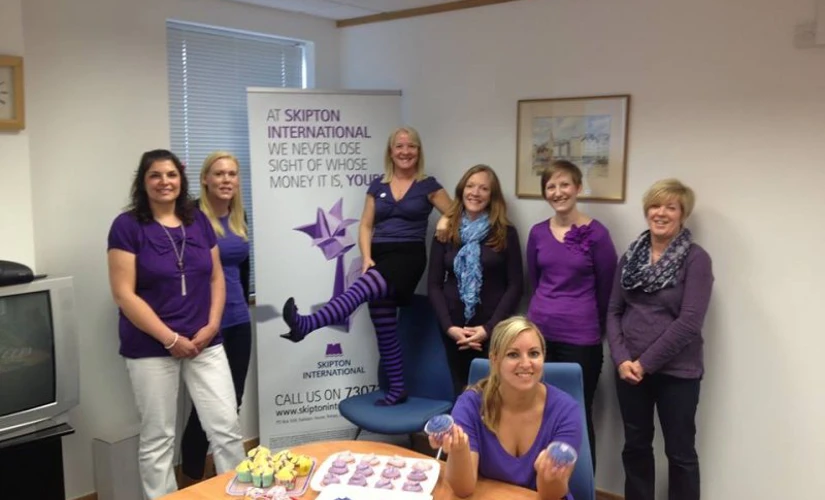International Purple Day for Epilepsy Awareness

Skipton International is helping support International Purple Day to raise awareness of Epilepsy. The Channel Islands bank's staff will be holding an event in their office by coming to work wearing purple to raise funds for the Epilepsy Association, and is urging other islanders to join in by wearing something purple on March 26th.
Epilepsy is the most common serious neurological condition and 1 in 100 of us have it. 1 in 20 of us will at some point in our lives have an epileptic seizure of some kind although we won't go on to suffer from the condition. It is not a disease or an illness and is not catching.
In Jersey, Roxanne Hayward is mother to a 12 year old with the condition, she says that people are still scared of epilepsy and there is very little help available to sufferers and their families. Roxanne is helping set up a support network in the island: 'There is very little knowledge and we don't have any neurological specialists on the island, but it is a condition which impacts on the whole family. My daughter just wants to be normal and to have people understand what is happening when she has one of her seizures, but she finds it embarrassing and this affects her behaviour at home. Through the Jersey Epilepsy Association we are setting up a support network for families like ours. We want people to talk about epilepsy openly and to dispel some of the myths that surround it.'
Skipton International's Managing Director, Jim Coupe is calling on other companies to help raise awareness of epilepsy on March 26th: 'This condition affects over 65 million people worldwide, and there are over 40 different types. If we understand it better then it will make the lives of those who have the condition much easier. We urge people to make the effort and support Purple day to increase understanding and raise funds for our local Epilepsy Association.'
Purple Day was started in 2008 by a 9 year old Canadian girl. She chose the colour purple because in some cultures the lavender flower is associated with solitude, which represents the feelings of isolation many people affected by epilepsy feel.
To support Jersey Epilepsy Association please make cheques payable to: Jersey Epilepsy Association, and send to: Ken Le Brun, Treasurer, Les Beaux Reves, La Dimerie, St Mary, JE3 3DP. Ken is also available via phone for any queries: 01534 482050.
Facts about Epilepsy
- Epilepsy affects over 65 million people worldwide
- Epilepsy is a common serious neurological condition where there is a tendency to have seizures that start in the brain.
- Epilepsy is usually only diagnosed after a person has had more than one seizure.
- More than half a million people in the UK have epilepsy. This is around 1 in 100 people.
- Anyone can develop epilepsy, it happens in all ages, races and social classes. Epilepsy is most commonly diagnosed in children and people over 65.
- Seizures happen when there is a sudden interruption in the way the brain normally works.
- There are over 40 different types of seizure ranging from someone simply going 'blank' for a few seconds, to falling to the ground and shaking, or convulsing. Not all seizures involve convulsions.
- Some people are unconscious during their seizures and don't remember what happens to them.
- There are many different reasons why someone might develop epilepsy, but sometimes it just starts 'out of the blue' and the cause cannot be found.
- One in 20 people will have a one-off epileptic seizure at some point in their life, but this doesn't mean they have epilepsy.
- One in 50 people will have epilepsy at some point in their life, but this doesn't mean they'll have it for life.
- Up to 5% of people with epilepsy will be affected by flashing lights (photosensitive epilepsy)
- There are 1,000 epilepsy-related deaths a year.




